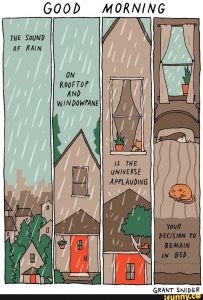This brings to mind a famous teaching about meditation: “In zazen, leave your front door and your back door open. Let thoughts come and go. Just don’t serve them tea.” When you offer tea to a guest, this will make them feel “at home”. It is an invitation to stay. [Shunryu Suzuki Roshi]
Category: zen
Mantra Against Demons (降魔眞言)
항마진언 (降魔眞言) hang ma jin eon [subduing demons mantra] 아이금강 삼등방편(我以金剛 三等方便) a-i geumgang samdeung bangpyeon 신승금강 반월풍륜(身乘金剛 半月風輪) shinseung geumgang banweol pungryun 단상구방 남자광명(壇上口放 喃字光明) dansang gubang namja gwangmyeong 소여무명 소적지신(燒汝無明 所積之身) soyeo mumyeong sojeok jisin 역칙천상 공중지하(亦勅天上 空中地下) yeokchik cheonsang gongjung jiha 소유일체 작제장난(所有一切 作諸障難) soyu ilche jakje jangnan 불선심자 개래호궤(不善心者 皆來胡跪) bulseon […]
龍頭蛇尾 (Head of a Dragon, Tail of a Snake)
龍 頭 蛇 尾 룡 두 사 미 ryong du sa mi dragon head snake tail
dok-cham (dokusan) “獨參” “독참”
獨參 is pronounced “dok cham” in Sino-Korean. It is more widely known in the West using the Sino-Japanese pronunciation “dokusan”. The characters literally mean “alone” (獨) + “consult” (參).
“Guard it well.” (宜善護持)
宜善護持 “Guard it well.”
宜 yí should
善 shàn good, appropriate
護 hù protect, safeguard, defend
持 chí hold, retain (as in dharani)
The Record of Linji at CBETA (with an example)
約山僧見處,勿嫌底法。
“As far as this old mountain monk is concerned, everything has basic goodness.”
The Universal Gateway Chapter of the Lotus Sutra in Sino-Korean
관세음보살보문품
觀世音菩薩普門品
Kwan Se Eum Bo Sal Universal Gateway Chapter
Evening Drum, Morning Bell (暮鼓晨鐘)
According to the Digital Dictionary of Buddhism, this is a Chinese idiom “describing a strict daily routine. It derives from the playing of bells and drums within a Chinese Buddhist monastery to mark the services throughout the day and the articulations of the monastic routine.”
Amanda Palmer’s “In My Mind”
And when they put me in the ground, I’ll start
Pounding the lid
Saying I haven’t finished yet
I still have a tattoo to get
That says I’m living in the moment
Ching Ching’s “The Sound of Raindrops” (雨滴聲)
鏡清問僧。Ching Ching asked the monk:
門外是什麼聲。 What is the sound outside the gate (gate outside is what sound)?
僧云。雨滴聲。The monk replied: it is the sound of raindrops (rain drop sound).
